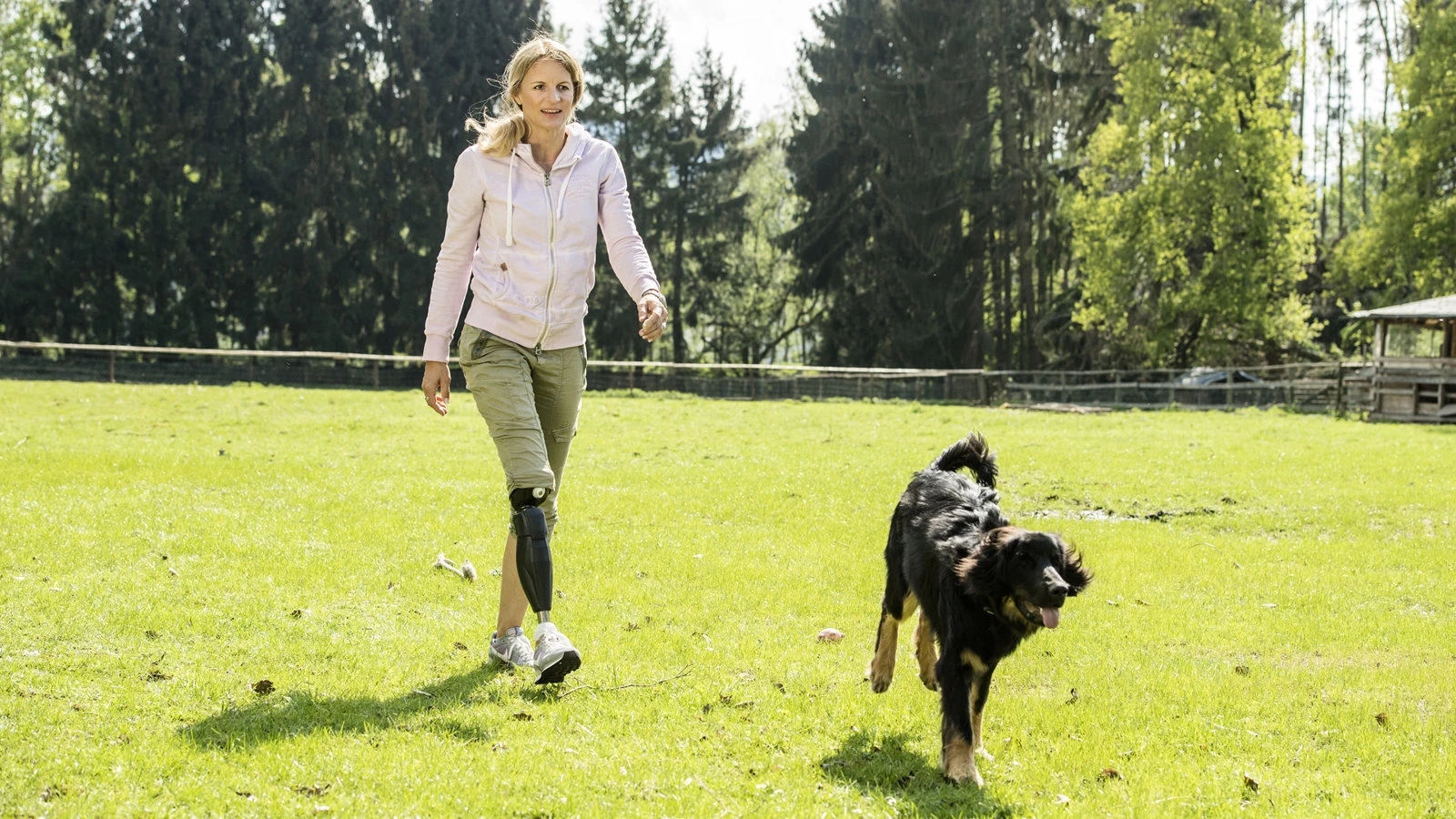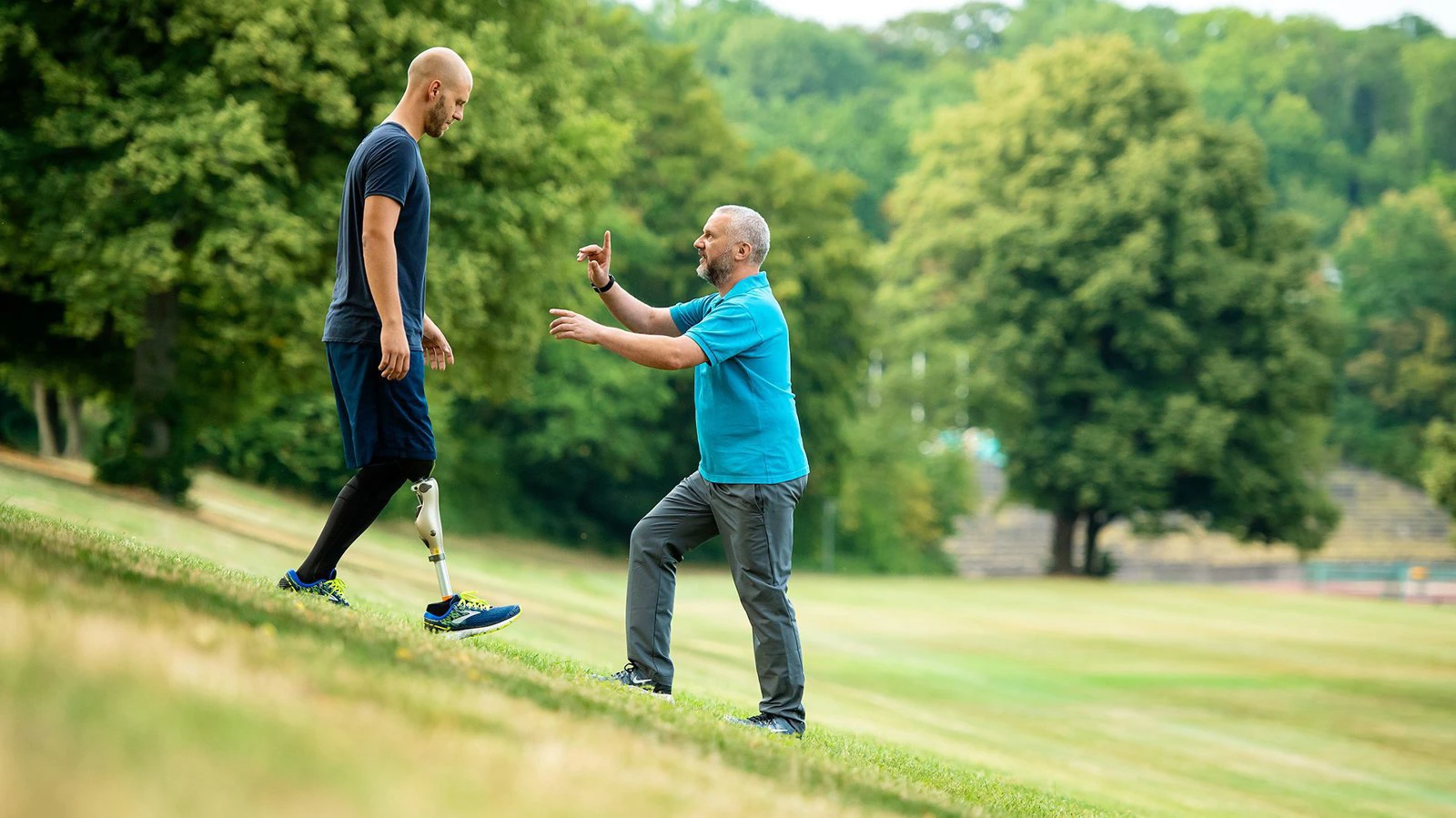A Micro-Processor-Controlled Knee (MCK) - is an electronic prosthetic knee for upper leg replacements after (trans-femoral) amputation. An MC is designed to mimic the natural movement of the knee joint as closely as possible. This is especially ideal for active prosthesis wearers with transfemoral amputation.
The intelligent MCK (MPK in Dutch) knee automatically responds to your movements. Thanks to built-in sensors and a microprocessor, the knee adjusts in real-time. This gives you more stability, a more natural gait pattern, reduced energy consumption and extra safety. Think options like a trip recovery function. At Amputee Care Center, we look together to see if this technology suits your lifestyle. Schedule a free introductory meeting and discover all the possibilities and various MCK models




